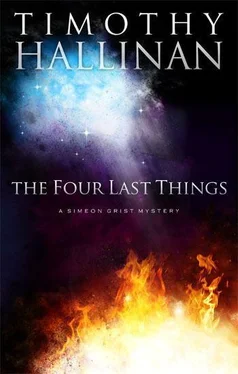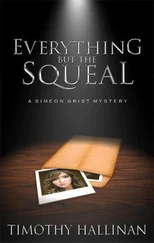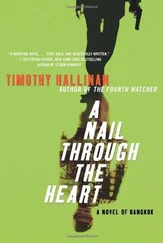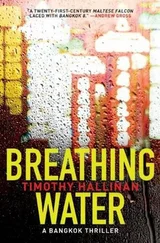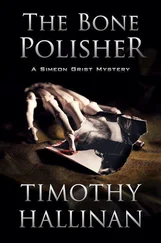Timothy Hallinan - The four last things
Здесь есть возможность читать онлайн «Timothy Hallinan - The four last things» весь текст электронной книги совершенно бесплатно (целиком полную версию без сокращений). В некоторых случаях можно слушать аудио, скачать через торрент в формате fb2 и присутствует краткое содержание. Жанр: Криминальный детектив, на английском языке. Описание произведения, (предисловие) а так же отзывы посетителей доступны на портале библиотеки ЛибКат.
- Название:The four last things
- Автор:
- Жанр:
- Год:неизвестен
- ISBN:нет данных
- Рейтинг книги:4 / 5. Голосов: 1
-
Избранное:Добавить в избранное
- Отзывы:
-
Ваша оценка:
- 80
- 1
- 2
- 3
- 4
- 5
The four last things: краткое содержание, описание и аннотация
Предлагаем к чтению аннотацию, описание, краткое содержание или предисловие (зависит от того, что написал сам автор книги «The four last things»). Если вы не нашли необходимую информацию о книге — напишите в комментариях, мы постараемся отыскать её.
The four last things — читать онлайн бесплатно полную книгу (весь текст) целиком
Ниже представлен текст книги, разбитый по страницам. Система сохранения места последней прочитанной страницы, позволяет с удобством читать онлайн бесплатно книгу «The four last things», без необходимости каждый раз заново искать на чём Вы остановились. Поставьте закладку, и сможете в любой момент перейти на страницу, на которой закончили чтение.
Интервал:
Закладка:
His eyes flickered, and he looked down at the pad in front of him.
"So you gave her to Fauntleroy and Fauntleroy gave her to Needle-nose-a Listener-whose name I'd really like to know. I don't suppose you'd like to tell me what it is, would you?"
Brooks shook his head. His face shone in the lamplight.
"You didn't want to lose sight of her and you didn't want anything to happen to her, so you had Fauntleroy hire me to follow her while she was having her Listening sessions at the Sleepy Bear Motel."
"No," he said. "That was Ellis's idea."
"Anyway, the problem is that the Listener, who shall for the moment be called Needle-nose, is either already working for Merryman or else he gets the idea when he hears what Sally says that he could be on the way to becoming a very rich man. One way or the other, he cuts you and Fauntleroy out of the information Sally's giving him and passes it on to Merryman instead. When he's sure he's got it all and that no one else knows what it is, he kills her. On Merryman's orders, of course. Then he defects openly to the other side. Starts hanging out at the Borzoi, scrubbing the faces of the faithful with steel wool whenever they backslide a little. Is any of this new to you?"
"Some of it."
"Is it worth a million dollars?"
"What happened to Ellis?"
"They killed him. More or less in front of me, to scare me off. They didn't think I knew much of anything. Hell, I didn't know much of anything. Then, I mean."
"Well," he said, "You've certainly caught up."
"You didn't know what Sally had on Merryman."
"No. As you say, they cut me out."
"You know now. Think it gives you the lever you need?"
"If it doesn't, I've wasted a lot of legal training."
"So is it worth a million?"
He stood up and ripped the pages neatly from his pad. Then he ripped out the four or five blank pages beneath and tore them into tiny pieces. He made a little heap of pieces on the desk and looked back down at his notes. He smiled at me.
"I should say it is," he said.
Chapter 24
We agreed to meet at five the next evening to exchange the statement for the money, and I left. Adelaide saw me to the door.
"Please come back," she said. "Sometime when you can stay for dinner."
"After the holidays," I said, thinking that Merry was going to have a very long holiday indeed. Adelaide leaned forward and kissed me on the cheek.
Well, dismiss it. Too bad for Adelaide. All the dead and violated crowded into the Camaro with me as I drove: Sally, Anna and her mother, Ellis Fauntleroy, Jessica and Mrs. Fram, Angel. Mary Claire? I didn't know about Mary Claire. They all sat there in reproachful silence as I drove downtown.
What was needed was something decisive, and very, very public.
It was well after seven when I got to the Russell Arms. I parked the Camaro on the street and walked over to the Borzoi.
I began to spiral in on it from two blocks away, noting the names of the streets, counting paces, looking for pedestrian tunnels, manholes, anything that suggested the possibility of passage. When I finally angled into the square the Borzoi dominated, I was on the opposite side from the hotel.
The homeless, temporarily liberated by the end of the rain from their cardboard and plastic, milled about aimlessly, talking to each other, talking to the sky, talking to themselves. Bottles were passed from hand to hand, no less carefully than Brooks had placed the tray on the polished desk. People wore anything-large coats, small trousers, pieces of rope, boots, bedroom slippers-as though their clothes had attacked them and fastened themselves to their bodies for life, like Spanish moss or mistletoe trailing from trees. The smell of humanity, concentrated and distilled, rose in eddies of conduction and roiled across the street toward me. The people in the square probably bathed more frequently than Louis XIV and his court. I closed my eyes and breathed it in, imagining the scent of Versailles.
The front of the Borzoi was as brilliantly lighted as the Winter Palace of the czar. So was the studio adjacent to it. Glaring white light, enough to make me wince when I looked directly at it, poured across the sign that said church of the eternal moment. The reflected light scattered itself carelessly over the people in the square, bringing a face into sharp relief here and there, glinting off bottles, zippers, buttons, buckles, the occasional gold tooth. The light of sanctity was only loaned to them; when the Church was finished with its business, it would leave them once again in the dark.
Well, the more people there were in the square, the better I liked it. I sat down on the curb and began to sketch the Borzoi and the studio on a pad I'd stolen from the Russell Arms. It said Holiday Inn at the bottom, which dulled the edge of my guilt.
I drew the buildings high up on the pad, allowing everything but the three lowest floors of the Borzoi to run off the top of the page. Then, in dotted lines, I started to draw the basement as I remembered it.
"Very nice," said the man who had sat down next to me. He was wearing mismatched running shoes of different sizes and colors, and loose trousers that looked like they stayed up mainly because they were so sticky. The ensemble was topped off by what seemed to be a very good, if amazingly dirty, Giorgio Armani jacket.
"Thanks," I said.
"God didn't make buildings," the man said, holding out a half-pint bottle of Johnnie Walker Red. I took a nip and handed it back.
"He didn't?" I said, trying to orient the area of the basement that contained the kitchen. The man's hand fell on the pad, and I was forced to look up.
"No," he said slyly, "but he made the men who made the buildings."
I edged his hand off the pad. "I guess that's true."
"He pulls their spirits upward with invisible strings," the man said, "and they build skeletons of steel so they can follow him toward heaven. The truest seeker after God in this century was the man who invented the elevator."
"Huh," I said, feeling like Mrs. Fram. I wasn't at all sure of my scale, and I needed to be.
"Even at sea, men put tall masts on ships so they can climb upward toward the Lord."
"I thought they were to hold the sails," I said.
"That's what they tell people," he said. He gave an abrupt laugh. "Sails," he said in vast amusement. He laughed some more.
"Busy over there," I said, sketching.
"Always on Friday," he said, subsiding into mere chuckles.
"And tomorrow?"
"Tomorrow's the big day. The little chiclet."
"Have you been inside?"
"No," he said, drinking. "They don't let real people in." He held the bottle out again and I declined. He looked at the pad again. "Why are you drawing basements?" he said.
I stood up. "I want to get as far away from God as possible," I said.
I walked out of the square and then down a side street. Taking a right, I angled back to the alley that ran behind the Borzoi.
It was empty and almost dark except for a couple of bare bulbs wearing tin hats that created cheerless cones of light that flickered down the rear wall of the building. I found the service entrances again and also a couple of casement windows that opened into the basement. I hadn't noticed any windows when I'd been down there, and now I knew why. They'd been painted a thick, sooty black on the outside. That way, no one inside could scratch a line of light into them.
The locks were junk, in line with the Church's policy of spending only on what was directly in the line of sight. One peculiar touch was that both doors had chains on them like the one that Caleb Ellspeth had been so reluctant to undo. The chains were on the outside. And why not? Who would want to get into the basement?
I checked for wires, leads, connections, electrical tape- any sign of an alarm system-and found none. The man they had put in the duct had said "thank you." The woman in the dumbwaiter had closed the door on herself after I'd opened it. They didn't need alarms. They'd implanted the alarms in the people.
Читать дальшеИнтервал:
Закладка:
Похожие книги на «The four last things»
Представляем Вашему вниманию похожие книги на «The four last things» списком для выбора. Мы отобрали схожую по названию и смыслу литературу в надежде предоставить читателям больше вариантов отыскать новые, интересные, ещё непрочитанные произведения.
Обсуждение, отзывы о книге «The four last things» и просто собственные мнения читателей. Оставьте ваши комментарии, напишите, что Вы думаете о произведении, его смысле или главных героях. Укажите что конкретно понравилось, а что нет, и почему Вы так считаете.
